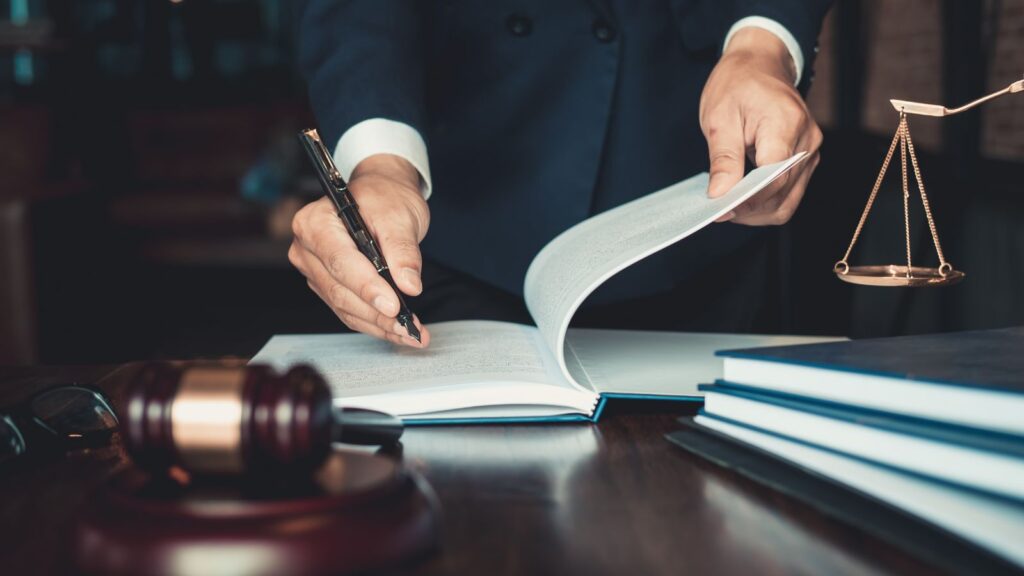
A road accident can be overwhelming, especially in the immediate aftermath. Knowing what steps to take within the first 48 hours is crucial for protecting your health, gathering essential information, and ensuring your legal rights are preserved. By staying calm and following specific actions, you can manage the situation effectively. To get a comprehensive understanding of how to handle a car accident, learn more about the steps involved to make the process smoother and protect yourself legally.
Prioritize Medical Attention
Right after an accident, check if you or anyone else is hurt. Don’t just shrug off your feelings; adrenaline can trick you into thinking you’re not hurt. Head to a doctor to get checked out quickly because some injuries, like whiplash or concussions, can sneak up on you later. Getting a doctor to look you over right away not only helps catch injuries early but also creates a record that might be useful for insurance or legal stuff later.
Keep any paperwork from doctors or hospitals cause you might need these to show your insurance company or if you need to ask for money for your injuries. If paramedics come by, tell them about even the smallest ache or pain.
Document the Scene Thoroughly
Gathering evidence is a critical step after a road incident. If you are physically able, take photos or videos of the scene before vehicles are moved. Capture details like the position of each vehicle, any visible damage, skid marks, broken glass, or other notable factors. Also, photograph any injuries you or others may have, as visual evidence can strengthen your case later.

File a Police Report
Even if it seems like a small deal, get the cops involved. They write a report detailing everything about the accident, which is super important for insurance and legal reasons. When you talk to the cops, just stick to what you know. Guessing or saying it was your fault can backfire big time.
Ensure you get a copy of the police report or at least the report number. You’ll need this when you deal with your insurance or if things get legal.
Notify Your Insurance Company
Call your insurance quickly. Most policies say you’ve gotta report accidents soon after they happen. Tell them what happened, just the facts. Share any info you collected at the scene like photos, details from others involved, and that police report number.
Stick to the truth when you talk to your insurance. They’ll tell you what they need from you next, like whether you must fill out claim forms or how to get your car inspected for damages.
Consult a Legal Professional
If you’re banged up or if there’s a big fuss about who caused the accident, talking to a lawyer can be a big help. They know the ins and outs of car accident claims and can deal with insurance companies for you, which can be a huge relief.
Lawyers can help determine whether the insurance company’s offer is fair or whether you should push back. They usually meet with you for free the first time to determine whether you have a good reason to fight the insurance company or the other people involved.
Important Considerations for Post-Accident Actions
In the first 48 hours after a road incident, staying organized is essential. Keep all documents and records in a designated file, including medical bills, car repair estimates, police reports, and any correspondence with insurance providers. This will make it easier to access information if needed and ensure no detail is overlooked.
If the accident was minor, you might feel tempted to skip some steps, like filing a police report or consulting a lawyer. However, these precautions can protect you from unexpected complications down the line. Insurance claims, injuries, and legal responsibilities may not be immediately clear, and having a record of your actions can prevent future issues.
Avoiding Common Mistakes After an Accident
It’s easy to make mistakes in the stressful aftermath of an accident, but some missteps can affect your case. For instance, admitting fault at the scene or to the insurance company may weaken your claim. Even apologizing can be perceived as an admission of responsibility, so avoiding any language that implies fault is best.
Another common mistake is delaying medical attention. Even if you don’t feel hurt right away, seeking medical advice ensures that hidden injuries are treated promptly. Additionally, neglecting to document the scene or gather witness information can reduce your ability to support your claim. You can avoid these pitfalls and better protect yourself by taking careful steps.
Understand Your Rights and Responsibilities
After a road incident, it’s essential to understand both your rights and responsibilities as a driver. Knowing your rights helps you navigate insurance claims, medical expenses, and potential legal actions, ensuring you’re not exploited. On the other hand, your responsibilities include providing accurate information to law enforcement, cooperating with insurance requirements, and attending necessary medical appointments.
By familiarizing yourself with your legal obligations and protections, you can approach the situation confidently and make informed decisions about the best steps for your case.
Final Thoughts on Navigating the Aftermath of a Road Incident
Handling a road incident can be challenging, but taking the right steps in the first 48 hours can significantly impact your recovery, compensation, and peace of mind. Prioritize your health, document everything, and notify the relevant parties. When in doubt, seek expert guidance to help you make informed decisions. To learn more about handling car accident situations and protecting your rights, visit Harrell and Harrell for professional advice and support. You can navigate the situation effectively and move forward confidently with the right approach.








